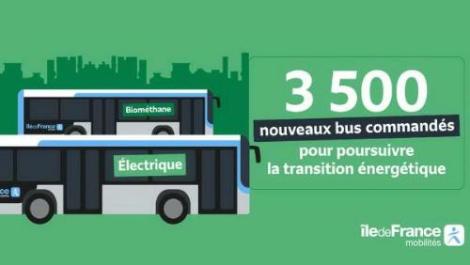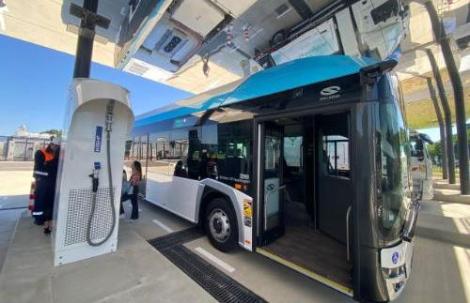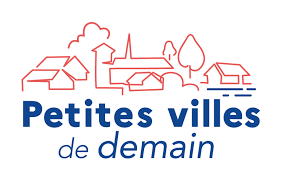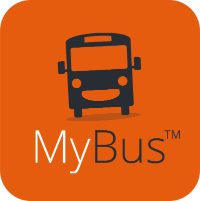Intermodality, a solution for tomorrow?
mars 2024
While the aim is to move towards low-carbon mobility, particularly with the introduction of the LOM (Mobility Orientation Act 26/12/2019), regional planning is just as crucial and requires the emergence of a diversified range of transport services that are accessible to all. As well as being ‘green’, it must be able to accommodate every stage of life, without any particular constraints. The Banque des Territoires is committed to the development of transport services in all regions. It supports initiatives aimed at facilitating their use and promoting their interconnection. Its ambition is to create this common thread for every individual, thereby promoting fluid and inclusive mobility.
Regional cohesion, transport and low-carbon mobility
In the face of climate change, the transition to more sustainable modes of transport has become an unavoidable priority. To this end, the emergence of low-carbon mobility and intermodality represent opportunities to meet this challenge. The association Transport & Environment estimates that intermodality could reduce CO2 emissions from passenger transport in Europe by 25% by 2050.
Decarbonised public transport for mass use
The greening of RATP

With the transport sector the biggest emitter of greenhouse gases in France, decarbonising transport, particularly public transport, is essential if we are to help reduce these emissions.
To support the ecological transition of bus fleets in service, the Banque des Territoires has deployed the Oblibus offer, in partnership with the European Investment Bank, to help local authorities, transport public-private partnerships, concessionary companies, public-private associations, public transport authorities and public-private limited companies to renew their transport offer with vehicles that emit fewer emissions.
RATP has undertaken the greening of its network, an initiative that the Banque des Territoires is supporting both as a partner and as a financier. In total, more than 4,700 vehicles will be converted by 2025/2029. Our shared ambition is not only to reduce greenhouse gas emissions from RATP’s activities by 50%, but also to further promote the use of public transport by deploying it more widely, while minimising its environmental footprint.
Hydrogen-powered buses in Dijon
In Burgundy-Franche Comté, we are also supporting the transition to a new fleet of 27 hydrogen-powered buses in Dijon, which is contributing to the decarbonisation of public transport. This excellent initiative has been subsidised by the European Commission, supplemented by a €5m fixed-rate Ecological Transformation Loan from the Banque des Territoires.

In this project, hydrogen is produced locally and cleanly by a process of electrolysis of water powered by electricity generated by recycling waste from the Dijon metropolitan area. It will be produced at two stations. One, located to the north of Dijon, will produce and distribute around 440 kilograms of green hydrogen per day to vehicles. It is scheduled to come on stream in the first half of 2024. Initially, it will fuel 4 refuse collection vehicles and 16 buses. The other, located on a bus and tramway operation and maintenance site to the south of Dijon, will produce and distribute around 1 tonne of hydrogen a day to fuel around forty buses by 2026. For these stations, we are providing mezzanine finance of €7m to Dijon Metropole Smart EnergHy, and the European Commission has awarded €6.99m in subsidies.
Small Towns of Tomorrow programme

More than just supporting the green transition of existing public transport services, our challenge at Banque des Territoires is to continue to innovate in order to encourage a network of transport services throughout the region, while promoting intermodality between these different modes of transport.
A challenge of support to encourage a network of transport throughout the territory
According to Transdev, only 44% of French people are satisfied with the number of public transport stops near their home. The challenge is therefore to deploy appropriate infrastructure, even in rural areas.
To support these necessary transitions in all regions, we have put in place various territorial development strategies, such as the Small Towns of Tomorrow programme. As part of this programme, we are mobilising substantial resources in the form of loans and equity to help towns and cities boost their appeal.
In addition, we recently launched the PVD+ offer, which provides the small towns in the programme with greater visibility of our green financing, with a view to helping them become operational. Identifying available funding, integrating green criteria as effectively as possible, supporting project structuring and financial packages, raising awareness and training elected representatives, etc. are all areas for improvement included in this offer.
This support is particularly important for the deployment of new mobility solutions and new urban developments that encourage the use of public transport, safe soft mobility and intermodality.
Monkey Factory
The ambition to create a clear overview of mobility

Gone are the days of comparing different sites and modes of transport… Monkey Factory offers an all-in-one solution that brings together a local authority’s transport offering in a single application, whatever the mode. The aim of this impact company is to accelerate the use of more sustainable, more inclusive mobility and thus help reduce the carbon impact of everyday journeys within local areas.
Thanks to their digital expertise and in-depth knowledge of local areas, Monkey Factory is offering a platform that centralises public transport, cycling, scooters, car-sharing, car parks and transport on demand. It equips local authorities with MaaS digital platforms, giving all citizens full visibility of mobility services, directly via their smartphone. Even transport tickets are integrated, for a simple, fluid and intuitive user experience!
We participated in the latest round of funding for this innovative project, which is a symbol of intermodality and which, by centralising information on a single platform, provides a turnkey solution tailored to each region.
More and more initiatives to promote intermodality in the heart of France
To encourage intermodality, it is important for users to be able to switch easily from one mode of transport to another. While some players, such as Monkey Factory, aim to simplify journey planning (overview of possible journeys, purchase of tickets, etc.), others focus on creating urban infrastructures that facilitate the transition between two modes of transport.
By way of example, given the significant increase in the daily use of bicycles (31% between 2019 and 2020), it has become essential, particularly for local authorities, to plan appropriate infrastructure that integrates cycling into the existing transport network.
To support this burgeoning trend, we will be encouraging initiatives that encourage this use in order to make it sustainable and thus bring about a global change in mobility habits. Multimodal transport stations are emerging, offering a seamless transition between cycling and public transport, and other innovations are taking shape.
One concrete example takes us to Rouen, where we are helping the city to test a solution involving on-board bike racks. The aim is to simplify the transition from bus to bike by enabling users to travel with their bicycles on buses. This patented system, completely new in France, ensures secure attachment and keeps the bicycle in place during the journey.
Conclusion
Regional planning in the era of low-carbon mobility represents a major challenge, and existing public transport systems are undergoing a genuine green transition. This transformation is also an opportunity to rethink the way we travel and to create better-connected urban environments. Intermodality is emerging as a promising solution for increasing the use of public transport and soft mobility.
To meet the diverse travel needs of the population and change travel habits for good, it has to be easy for people to use. At Banque des Territoires, we support the development of multimodal transport, provide investment and promote coordination between the various players. Together, we can build territories that are more accessible, more sustainable and more inclusive for everyone.